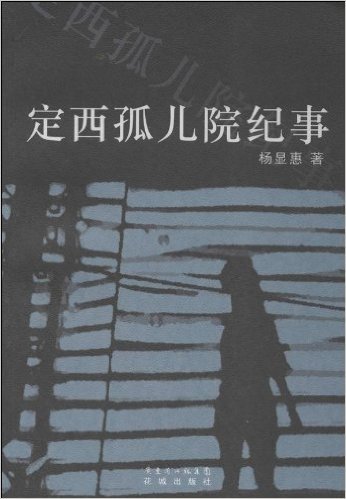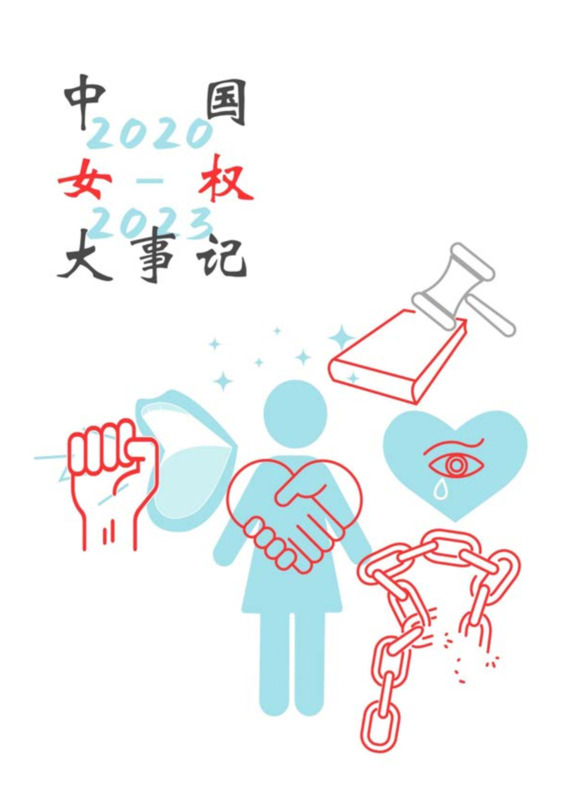Explore the collection
Showing 6 items in the collection
6 items
Book
Chronicle of Jiabiangou
Jiabiangou was a labor reform farm in Jiuquan County, Gansu Province, where "rightist" prisoners were held. October 1957, nearly 3,000 educated people were detained there. In October 1961, when the higher-ups corrected the "left-leaning" mistakes of the Gansu Provincial Party Committee and began repatriating the rightist prisoners, less than half had survived.
Writer Yang Xianhui spent five years interviewing more than a hundred people and brought to light the truth that had been sealed for more than forty years. Originally published by Tianjin Ancient Books Publishing House in 2002, this book also includes other short and medium-sized stories by Yang Xianhui.
Book
Chronicle of the Dingxi Orphanage
After the disaster in Dingxi Prefecture, which was the hardest-hit area of Gansu Province during the 1958-1960 famine, a children's welfare institution was urgently set up in Dingxi Prefecture to take in hundreds of orphans. During the same period, children's welfare centers or "kindergartens" were set up in all counties and towns in Dingxi Prefecture, as well as in the people's communes in the hardest-hit counties. These children's welfare centers, large and small, housed about 5,000 orphans. On the basis of faithful historical facts and statements by the parties concerned, this book brings tragic scenes of starvation and death before people's eyes using straightforward description, documentary language, and a down-to-earth tone of voice.
Book
Lushan meeting factual record
This book is a historical record of the 1959 Lushan Conference written by Li Rui. Based on the author's personal experience and the literature of the relevant departments of the Communist Party of China, the author has recorded the important points and events before and after the meeting. The first edition of this book was published in April 1989 by the Spring and Autumn Publishing House and Hunan Education Publishing House in mainland China; the updated edition was published in June 1994 by Henan People's Publishing House.
Book
Personal experiences of political movements
This book is a collection of many authors, most of whom were former senior officials of the Communist Party of China, such as Li Rui, Xiao Ke and others. Through the author's recollections, we can learn about the political movements of the Mao Zedong era, including the Cultural Revolution, the Anti-Rightist Movement, etc., as well as the details of many unjust cases, such as the Hu Feng case, which is quite convincing. This book was published by the Central Compilation and Translation Bureau Press in mainland China in 1998.
Book
The Great Leap Forward: An Intimate Memoir
Li Rui, who once served as Mao's secretary, is also an expert on Mao Zedong. Like his famous <i>Proceedings of the Lushan Conference</i>, this book is also an important historical work. It focuses on the author's personal experience of the Great Leap Forward initiated by Mao Zedong.
Book
Major Feminist Events in China 2020-2023
This is a record and index of major feminist events in China between 2020 and 2023. The document consists of more than 2,000 pages, in which 122 topics/events related to feminism have been curated. The document is divided into five chapters: “Feminism in the Public Eye ”, “Feminism in Individual Cases”, “Feminism in the Law”, “Feminist Activism,” and “Three Special Years - Feminism amid COVID-19”.
Each event entry is divided into two parts: event summary and related articles The first part aims to provide a complete and objective overview of the event, using first-hand materials when possible; the second part collects media reports and commentaries on the event published through public media outlets and social media platforms.
This document covers a wide range of topics/events, including but not limited to commercial surrogacy, gender discrimination in higher education, China’s population policy and the reproductive rights of women, misogynistic culture in the media, the progress and challenges of the #Metoo movement, legal analysis of law and policies concerning feminist issues, and feminist activism.
The editorial group introduced their intention as follows in the document’s introduction:
“This document, though imperfect, is an attempt to contribute to the writing of the history of Chinese feminism - history is the road we are walking at the moment, and we've come a long way, still searching for answers hidden in the thick fog. ”
“We hope that this document will not only serve as a tool, but also provide the reader with wisdom and strength.”





